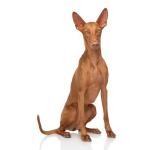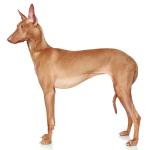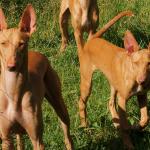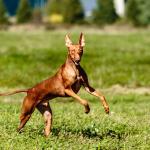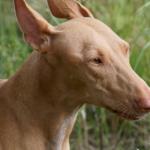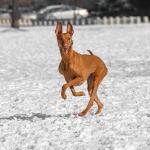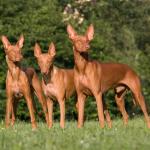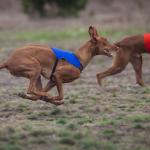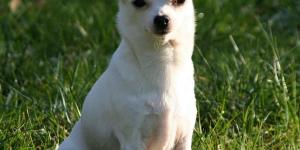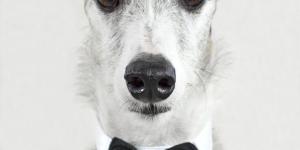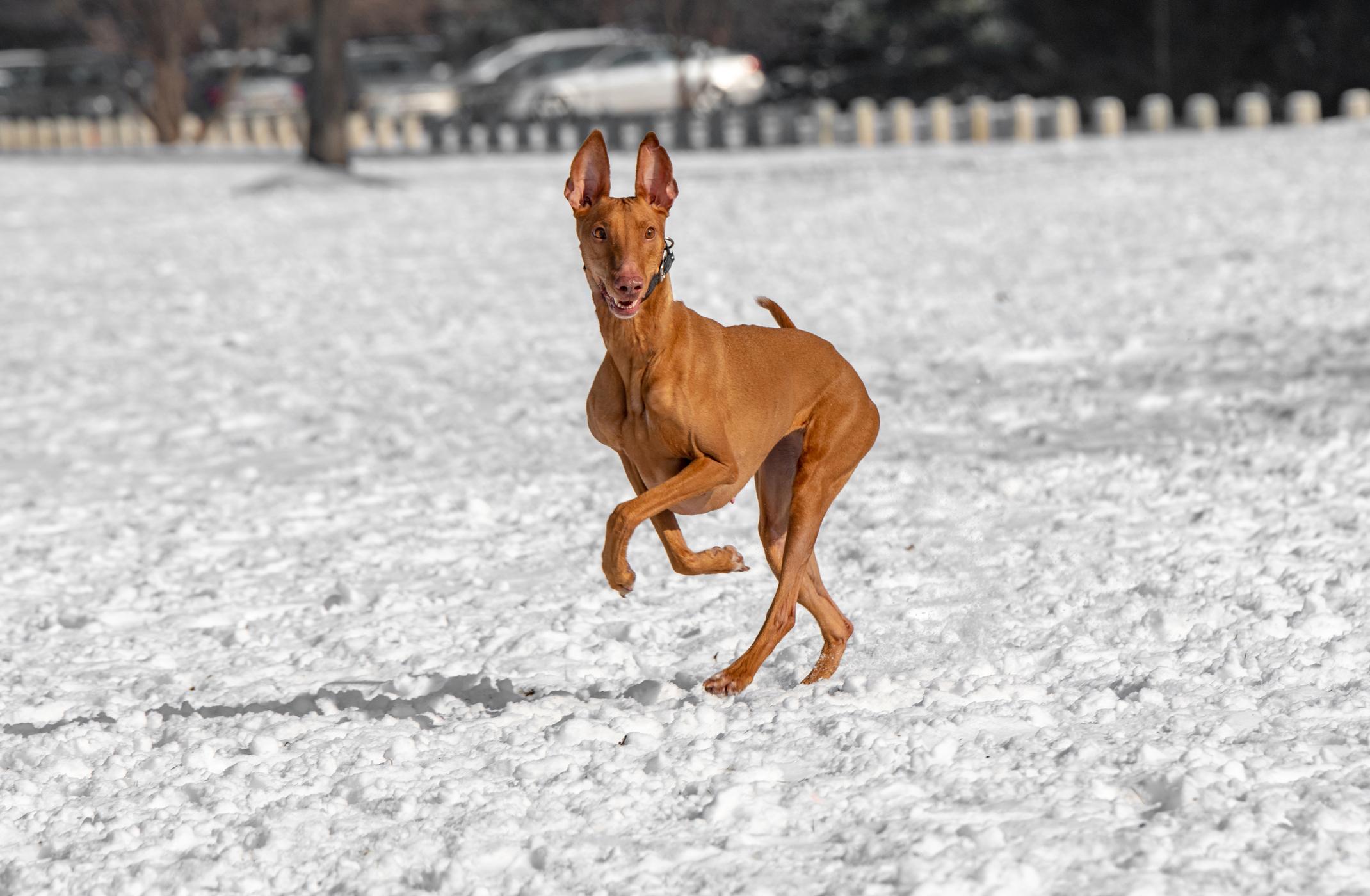Pharaoh Hound
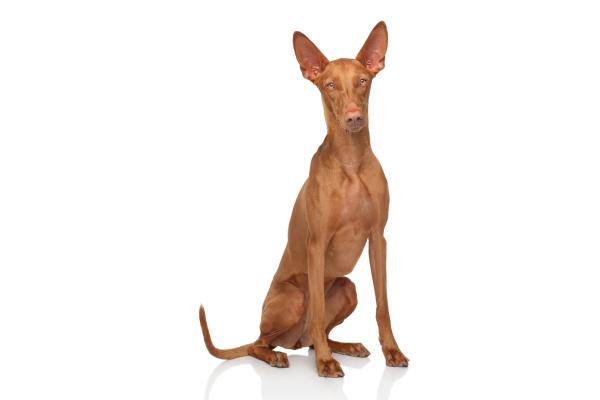
The Pharaoh Hound or Kelb tal-Fenek is a medium-sized, short-haired dog breed characterized by its elegant and athletic stance. It is a hunting dog that originally came from the island of Malta. Today, it is even considered the Maltese national breed. In spite of its lack of widespread distribution, the Pharaoh Hound is an excellent companion dog, characterized by its loyality and nobility.
Do you want to know more about the Pharaoh hound? Our AnimalWised breed file brings you everything you need to know about their characteristics, behavior, care, health and any other important information.
- Europe
- Malta
- Group V
- 5-14
- 14-18
- 18-22
- 22-27
- 27-31
- More than 31
- 2-7
- 7-22
- 22-55
- 55-100
- 100-220
- 8-10
- 10-12
- 12-14
- 15-20
- Low
- Meidum
- High
Origin of the Pharaoh hound
The Pharaoh's Hound is native to the island of Malta in the Mediterranean Sea, where he was used from the beginning to hunt rabbits. It was originally called the Maltese Rabbit Hound, but in an effort to give this dog a more noble name, breeders of the breed renamed it in the 1960s. This decision was based on the assumption that the dogs were brought to Egypt by Phoenician sailors because they resembled the dogs depicted on ancient Egyptian murals and carvings.
Although there is no clear genetic evidence of this connection, it is true that Phoenician traders may have visited the Maltese islands in ancient times. In addition, there are many true breeding types in the Mediterranean that are similar. Moreover, it is quite possible that dogs that performed a useful function such as hunting were highly valued and traded between people and nations.
In the early 20th century, this breed made its way to England, where it became increasingly popular. Eventually, it was also imported to the United States, where the American Pharaoh Hound Club was founded in 1970.
Characteristics Pharaoh hound
The Pharaoh Hound is a medium-sized, short haired breed with an elegant stance and well-defined lines. It has changed little since its development more than 5,000 years ago. It is a hunting dog that uses not only its sense of smell and sight when hunting, but also its keen sense of hearing when working close to its prey.
The athletic Pharaoh Hound has a lithe and strong build. They should be slightly longer than they are tall, with males having a shoulder height of 23 to 25 inches and females 21 to 24 inches. Pharaoh Hounds generally weigh 45 to 55 pounds.
Some main physical characteristics of the Pharaoh Hound are:
- The body is tall and slender.
- The head is triangular, long and finely chiseled, with a slight stop.
- The eyes are amber-coloured.
- The nose is flesh-colored and is similar to the color of the coat.
- The ears are always held erect when the dog is on the alert; they are broad at the base, thin and long.
- The neck is long, slender, and slightly arched. It ends in a deep chest with well sprung ribs.
- The limbs are strong and long.
- The tail is quite thick at its base and becomes thinner towards the tip. At rest the tail is held below the hock, but when the dog is active it is carried high and curved.
- The coat is glossy and short.
Pharaoh hound coat colors
The coat of the Pharaoh's dog is reddish brown, more or less dark depending on the specimen. White markings may appear on the chest, on the midline of the face, on the tip of the tail, and on the toes.
The dogs have the unusual property of "blushing" when excited or happy, with their ears and noses turning bright pink.
Character of the Pharaoh hound
The Pharaoh Hound is a friendly, affectionate and playful dog. He is a very loyal family dog, although at the same time he is quite independent. Pharaoh Hounds love their people and love to entertain them with their clownish antics. The downside is that they can be aloof with new people.
The Pharaoh Hound is characterized by their alert, lively and enthusiastic nature. They are very intelligent dogs that learn very quickly and easily. As a negative point, it could be said that they are quite barking dogs. Therefore, proper education from a young age is important to avoid this kind of undesirable behavior in later stages. Also, it is always critical to introduce a dog to many new people and situations while it is still a puppy. This is especially true for a Pharaoh, which can become very timid as they grow older.
Mental stimulation enhances your dog's cognitive and sensory development, improves their ability to learn, their ability to solve problems, and helps them improve their self-control and better manage stress. It also improves the relationship between dog and owner. If you want to know more about intelligence games you can play with your dog, read this other article about intelligence games for dogs at home.
Care of the Pharaoh hound
In this section, we compile the most important aspects to consider when caring for Pharaoh Hound.
- Exercise: If you are considering adopting a Pharaoh Hound, you should know that this is an active, energetic breed that requires a regular exercise to stay physically and mentally healthy. As a general rule, you should provide 1 to 2 hours of physical activity daily.
- Diet: Pharaoh Hounds should be fed a balanced diet appropriate for their age and activity level. Whether it is a commercial food or a homemade ration, it is critical that the food is of high nutritional quality. As with most dogs, it is advisable to divide the daily ration into two portions. They must also have clean and fresh water available at all times. Do not be tempted to overfeed them. Pharaohs have a lean build that many mistakenly think is underweight.
- Grooming: since this is a short haired breed, light brushing every day or more intensive brushing every week is sufficient. Pharaoh Hounds do not have a strong doggy odor and do not need to be bathed frequently. In addition, the teeth should be cleaned regularly with dog-specific toothbrushes.
- Ear Care: Special attention should be paid to ear hygiene. Check their ears weekly for redness or bad odor, which may indicate an infection. When examining your dog's ears, wipe them out with a cotton ball moistened with a gentle, pH-balanced ear cleaner to prevent infection.
- Other care: Although these dogs can adapt to living in an apartment, it is better if they have a large space where they can roam freely. If you leave him in the yard, you'll need a fence high enough, so they can not climb or jump, and as sturdy as possible, so they can not see the squirrels or cats on the other side. Because of their thin skin, they get cold easily and need a dog sweater or jacket when they venture outside on cold or wet days.
If your dog has an ear infection, and you are looking for a dog ear cleaning solution, keep reading this other article where we explain the most common home remedies for ear infections in dogs.
Training of the Pharaoh hound
Pharaoh's Hound is an intelligent dog. Because of their bright and enthusiastic nature, they learn quickly and are happy to follow the directions and guidelines of their handlers.
Even though they are well-trained and obedient dogs, it is common for them to be reluctant to respond to their handler's call when outdoors and off-leash. Moreover, we must not forget that although they are not always used as hunting dogs, their hunting instinct is still present. In fact, their prey drive is very strong, and when they spot a potential prey, they resolutely seize the opportunity to hunt. For these reasons, it is strongly recommended that they be kept on a leash at all times in unfenced areas. It is also important that they be introduced to other domestic animals, especially smaller ones, from a young age, otherwise they may view them as prey.
When not distracted by a hunt, they are quite easy to train due to their intelligence and eagerness to please. Just make sure the training sessions are interesting and enjoyable. Strict or repetitive training methods do not suit their sensitive, fun-loving personality. Keep training sessions short and end them with something they did right, so you can praise them for it.
If you want to learn more about how to train a dog properly, do not miss this other article, where we discuss the most common mistakes in training puppies.
Health of the Pharaoh hound
Pharaoh Hounds are generally healthy and have a life expectancy of 11 to 14 years. However, like all breeds, they are prone to certain health disorders. Not all Pharaoh Hounds contract any or all of these diseases, but it is important to be aware of them if you are considering this breed:
- Bone and joint problems: Pharaoh Hounds have been found to have a number of different musculoskeletal problems. While it may seem overwhelming, each condition can be diagnosed and treated to prevent unnecessary pain and suffering.
- Eye problems: Few things have as dramatic an impact on your dog's quality of life as the proper functioning of his eyes. Unfortunately, Pharaoh Hounds can inherit or develop a number of different eye diseases, some of which can lead to blindness if not treated immediately, and most of which can be extremely painful
- Allergies: Allergies are a common condition in dogs. There are three main types: Food allergies, which are treated by eliminating certain foods from the dog's diet; contact allergies, which are caused by a reaction to a topical substance such as bedding, flea powder, dog shampoos and other chemicals and are treated by eliminating the cause of the allergy; and inhalant allergies, which are caused by allergens in the air such as pollen, dust, and mold.
- Obesity: can be a significant health problem in Pharaoh Hounds. It is a serious condition that can cause or aggravate joint issues, metabolic and digestive disorders, back pain, and heart disease.
- Dental disease: is the most common chronic problem in pets, affecting 80% of all dogs by the age of two. And unfortunately, your Pharaoh Hound is more likely to have issues with his teeth than other dogs. It starts with tartar on the teeth and leads to infection of the gums and roots of the teeth.
If you want to know how to properly clean your dog's teeth at home to avoid common dental problems in this breed, continue reading this other article about cleaning my dog's teeth.
Where to adopt a Pharaoh hound?
At AnimalWised, we always advise adopting an animal before buying it from a breeder. Not only is it less expensive, but adopting a dog from a shelter can be incredibly rewarding and gives the dog a second chance at life. The easiest way to adopt a Pharaoh Hound is through animal shelters that specialize in this breed. In addition, local shelters or rescues often have many great Pharaohs available for adoption.
If you are considering adopting a dog, you should first seriously consider whether you have the time and willingness to do so. Adding a dog to your daily life, especially if it is a puppy, involves a significant amount of dedication and effort, which can make a big difference in your lifestyle.
Pharaoh Hound photos
